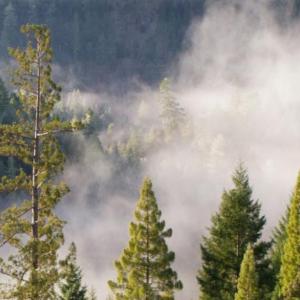Traditional Ecological Knowledge
Date
There is an increasing demand to integrate Traditional Ecological Knowledge (TEK) with Western science for climate change adaptation. However, the challenge lies in how climate, ecological, and social scientists can collaborate equitably with Tribal communities to achieve this. A new StoryMap on NC CASC’s “Traditional Ecological Knowledge” page addresses this, based on work by Phurwa Dondrub, an NC CASC graduate research assistant. It is intended to provide a (living) resource for scientists and managers interested in partnering with Tribes and communities, which will be continually updated as the NC CASC expands its knowledge and support for underserved communities in meeting their climate adaptation requirements. As Dondrub states, “Indigenous knowledge is inseparable from the people and institutions who hold and put them into practice in their daily livelihood. It is thus extremely important to partner with Indigenous communities in finding solutions to climate change. As equal partners, Indigenous communities will not only feel that their voice is heard but will also be invested as drivers of the project."
Most efforts to synthesize information about climate change on a national and international level have focused on Indigenous peoples without their direct involvement. However, there is a growing trend towards including Indigenous scholars, authors, and speakers in these efforts. For instance, James Rattling Leaf, Sr. from the NC CASC served as a review editor for the Indigenous Peoples chapter in the recent National Climate Assessment (NCA5). It is essential to keep supporting Indigenous peoples in telling their own stories to bridge the gap between TEK and Western science.
Ultimately, the best partnerships will emerge when TEK is viewed through a lens of anti-colonial justice. This requires partners to honor the cultural significance and governance importance of the knowledge, and to acknowledge and respect diverse ways of understanding the world. Such an approach will lead to partnerships characterized by equity, respect, and shared literacy. The NC CASC promotes these kinds of partnerships through innovative and practical research to assist Tribal, federal, state, and local natural resource management and decision-making. Our partnerships with Tribal nations in the North Central region and beyond are distinctive due to Indigenous peoples’ profound connections to the land. We, as a center, acknowledge the significance and worth of Traditional Ecological Knowledge in tackling the climatic, ecological, and social consequences of climate change.


